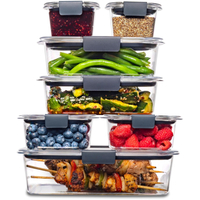5 signs it’s time to throw out old plastic food containers
It might be time to get rid of old plastic containers once and for all
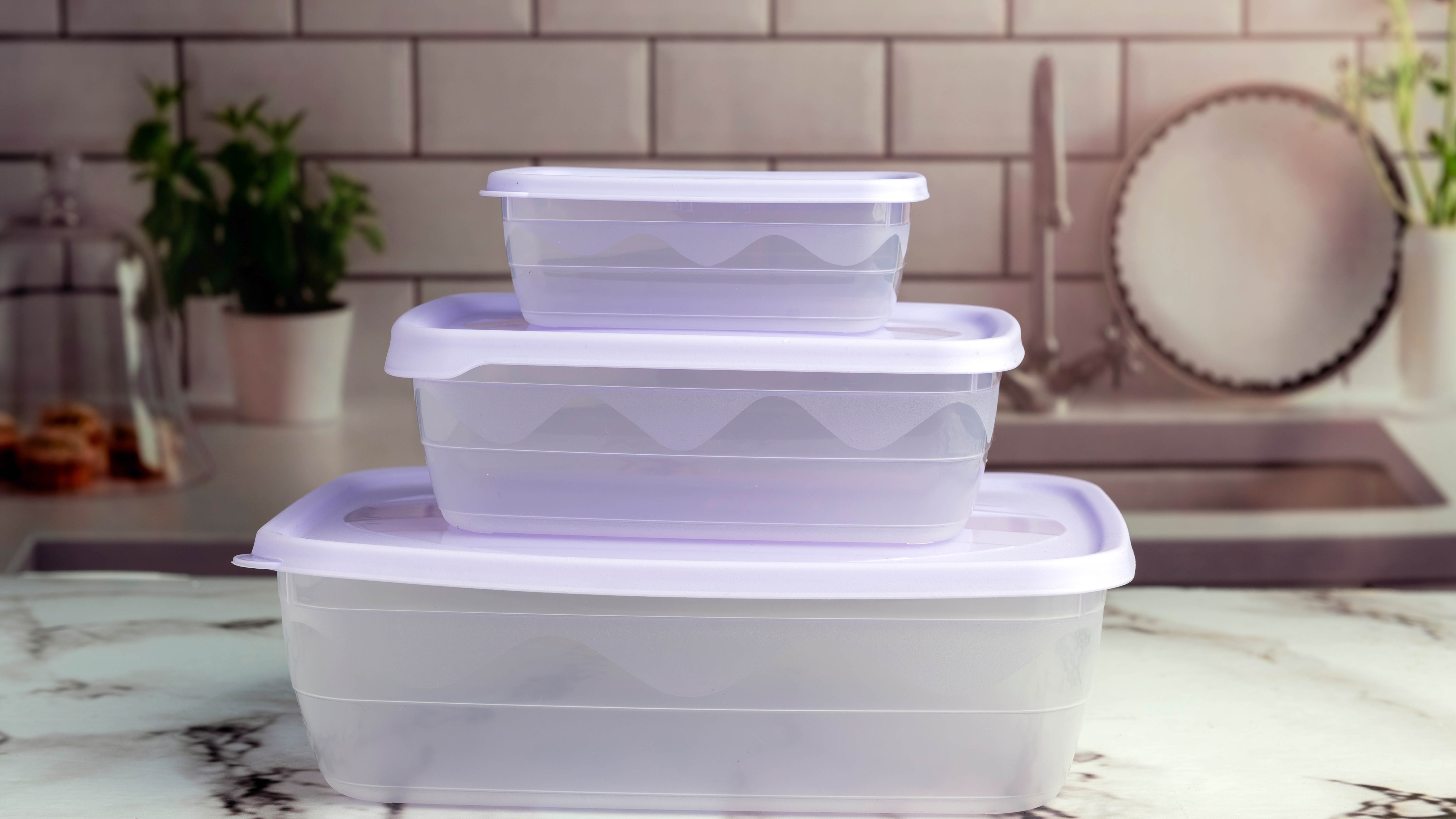
Whether it be for storing leftovers or organizing your refrigerated groceries, plastic food containers come in handy for all sorts of things.
Not only do plastic containers make our lives easier for batch cooking, but can easily be stacked and stored inside our kitchen cabinets. However,if your trusted containers are starting to look worse for wear or even cluttering up your kitchen cabinets, you’ll need to know when it’s time to throw them out completely! This is particularly important for food hygiene, and will prevent the risk of bacteria.
But, how do you know when it’s time to recycle them? Here are the telltale signs that you need to throw out old plastic food containers — right now!
1. You can’t get rid of stains

Whether it’s your leftover pasta sauce or curries, there’s no escaping unsightly stains. But if you can’t remove stubborn stains after every wash, then it’s time to ditch these. In addition, who wants to put food in a stained container anyway?
One tip to remove stains from plastic is to create a paste from mixing two tablespoons of baking soda with adequate water. Apply the paste to the stained areas and let it sit for a few hours. Then clean with a damp cloth or sponge and wash it thoroughly before drying.
2. It smells of lingering odors

Similarly, if your plastic container smells bad or has lingering odors, the thought of storing fresh food inside isn't very appealing!
If bad smells don’t come out with your baking soda solution, then it’s time to get rid of it completely. Again, baking soda has natural deodorizing properties and can absorb and remove odors. Unlike many store-bought products and sprays, baking soda is completely natural, non-toxic, and odor-free, which is ideal for use around the home.
Sign up to get the BEST of Tom's Guide direct to your inbox.
Get instant access to breaking news, the hottest reviews, great deals and helpful tips.
3. The lids are warped
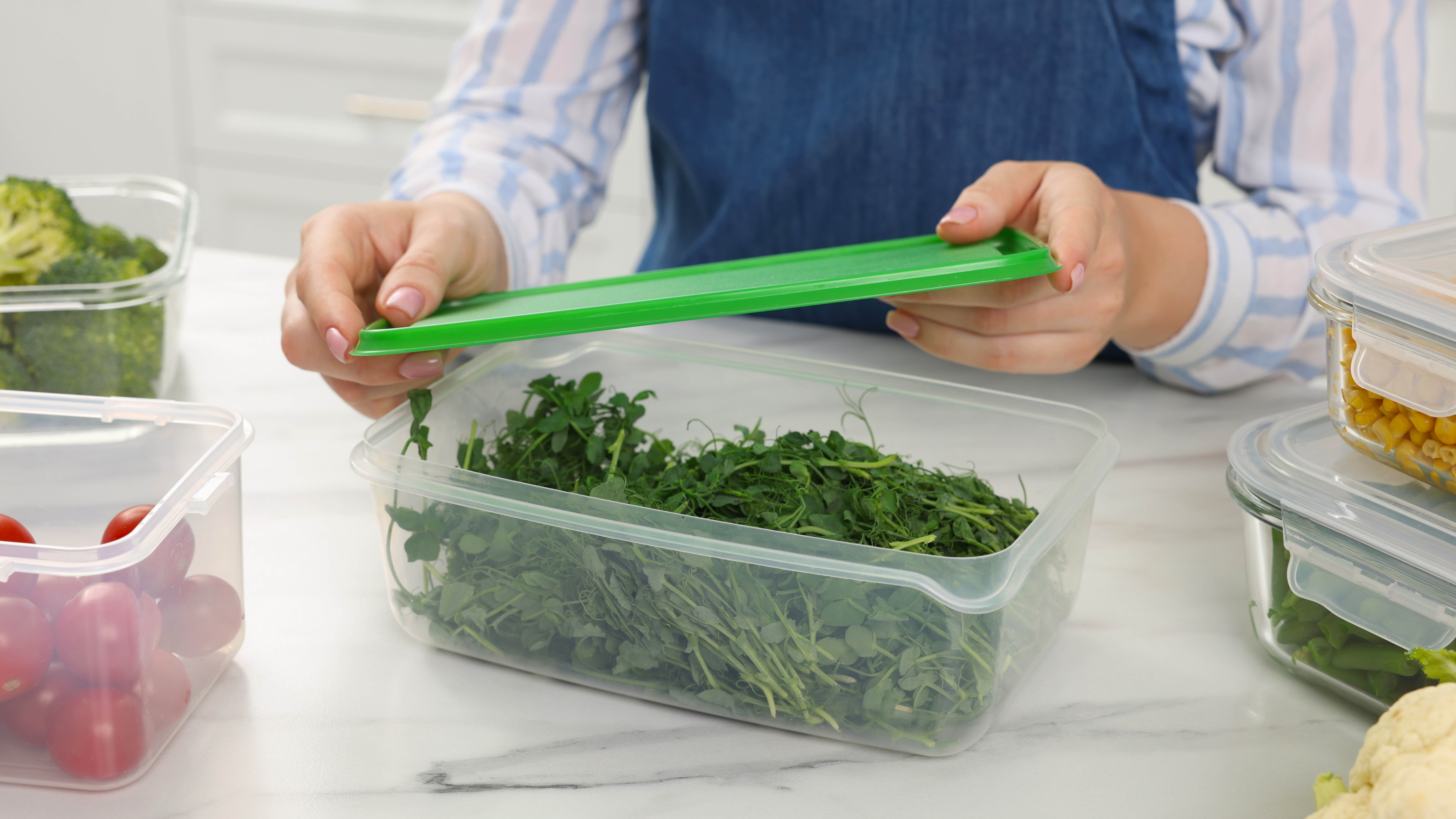
If you’ve ever struggled with a lid that won’t fit snugly on top of the container or it’s slightly bent out of shape, then it’s time to ditch it.
The whole point of food storage is to ensure it’s fully sealed to prevent air getting inside — and potentially spoil the food. So if you have any malfunctioning lids that won’t close properly, get rid of these right now.
Time to refresh your containers? This set from Rubbermaid is BPA-free and comes with 7 containers in assorted sizes with secure clip-safe lids. Ideal for meal prepping.
4. The plastic is cracked or split
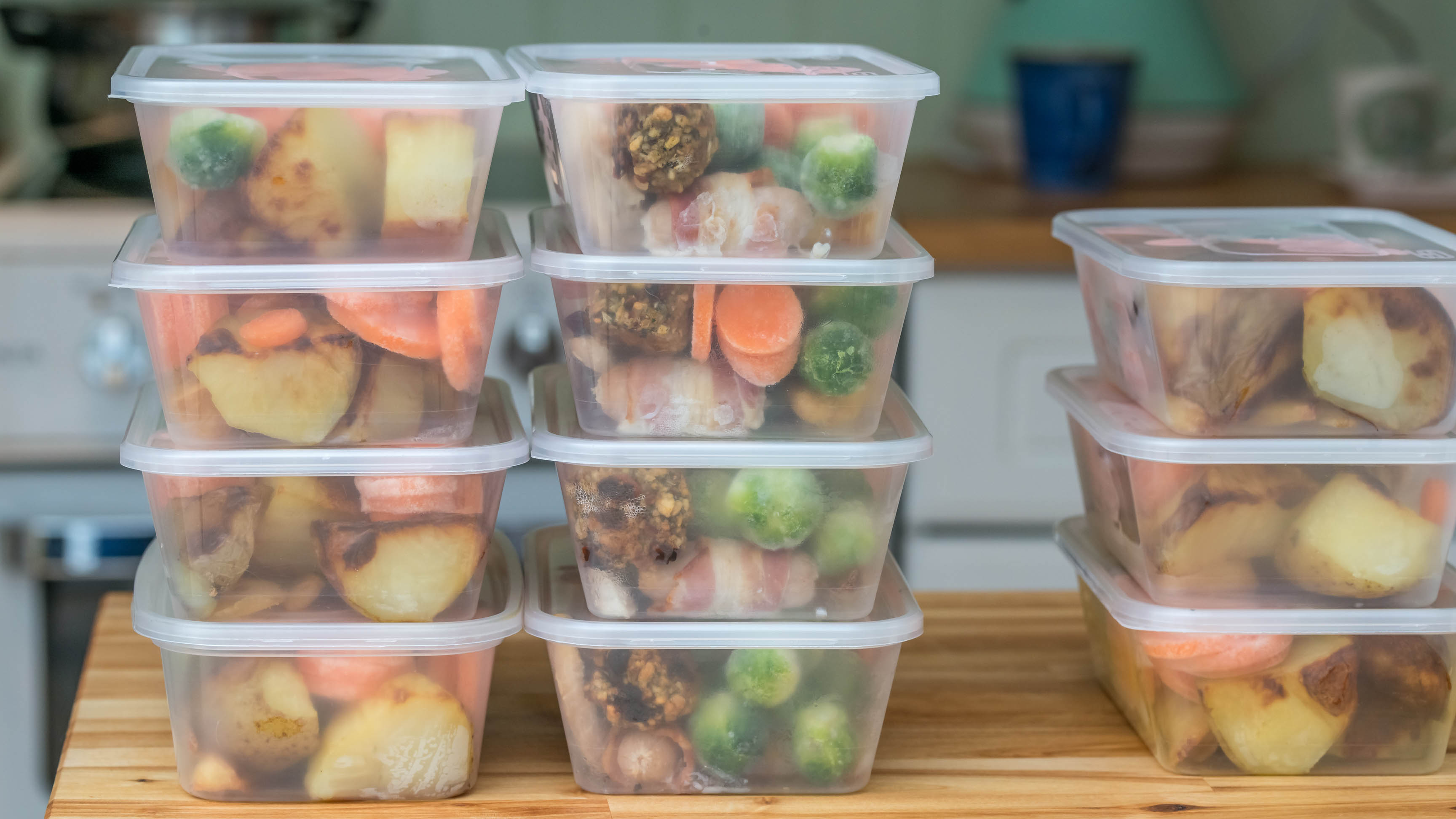
Again, if your plastic food container has a strange texture, split or cracked after years of use, this makes it unfit for purpose. Not only does it compromise the structure of the plastic — and can potentially contaminate your food but it will be prone to messy leaks and odors in your fridge.
Any plastic containers or lids should be thrown out at any signs of damage.
5. It's made of outdated materials
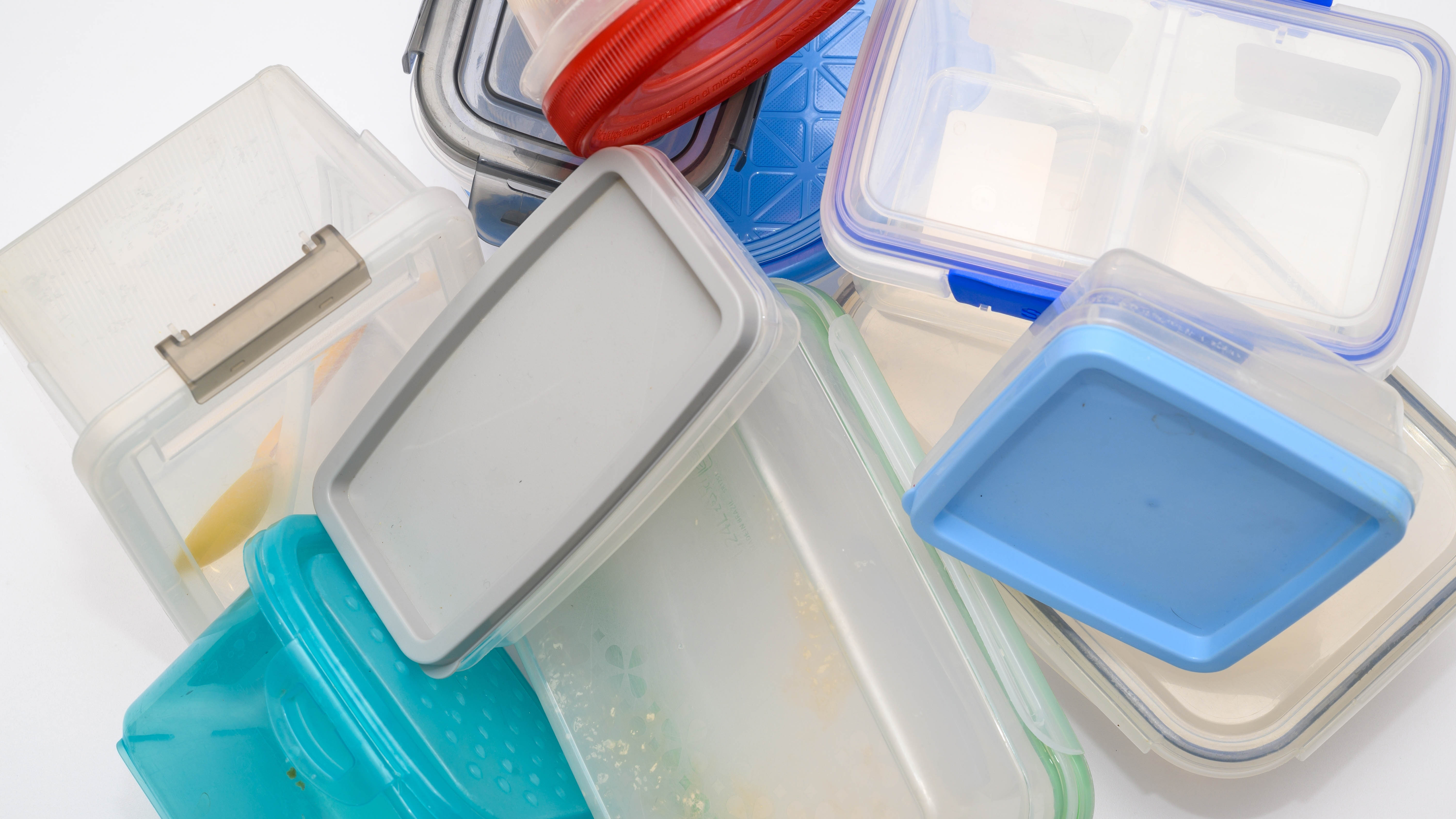
Whether you’ve inherited your parents’ “vintage” food containers or had your favorites for more than 10 years, there comes a time when you need to say goodbye. But besides looking outdated, there is an important reason why you should throw these out.
In past decades, many container-makers worked with plastics that included bisphenol A, or BPA. This is a harmful chemical that can leak into food and potentially cause serious health conditions. Nowadays, manufacturers have removed these chemicals from their products and use all food-grade, ‘BPA-free’ materials.
One top tip to make plastic food containers last longer is to hand wash them with warm soapy water, rather than putting them into a high-heat dishwasher. Such hot water/heat conditions could weaken the plastics, leave scratches or compromise the structure.
More from Tom's Guide

As the Homes Content Editor, Cynthia Lawrence covers all things homes, interior decorating, and garden-related. She has a wealth of editorial experience testing the latest, ‘must-have’ home appliances, writing buying guides and the handy ‘how to’ features.
Her work has been published in various titles including, T3, Top Ten Reviews, Ideal Home, Real Homes, Livingetc. and House Beautiful, amongst many.
With a rather unhealthy obsession for all things homes and interiors, she also has an interior design blog for style inspiration and savvy storage solutions (get rid of that clutter!). When she’s not testing cool products, she’ll be searching online for more decor ideas to spruce up her family home or looking for a great bargain!
